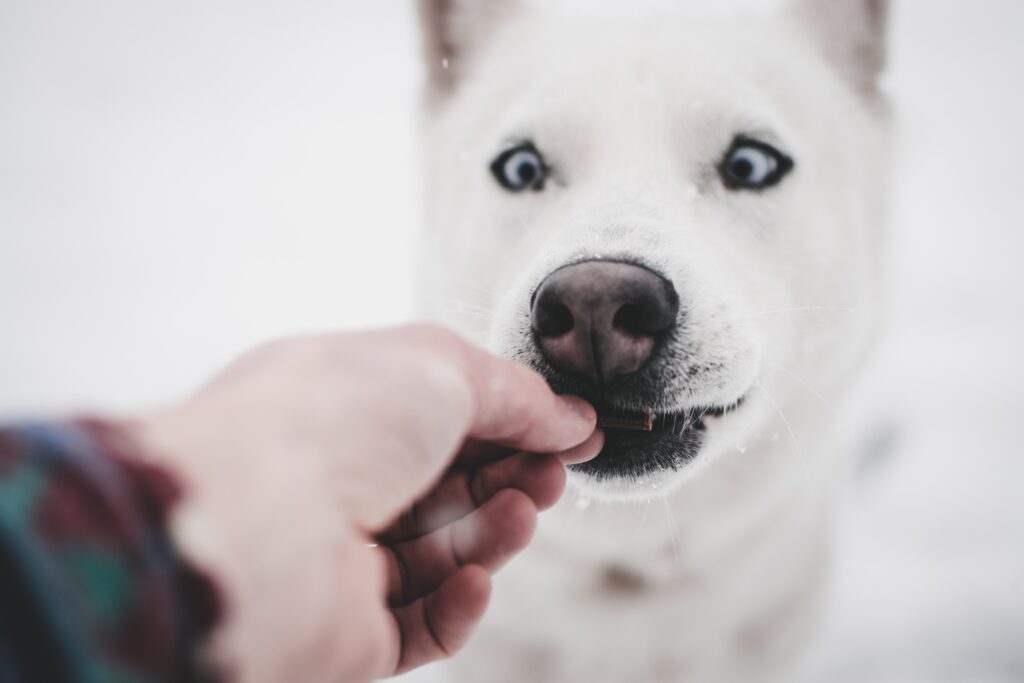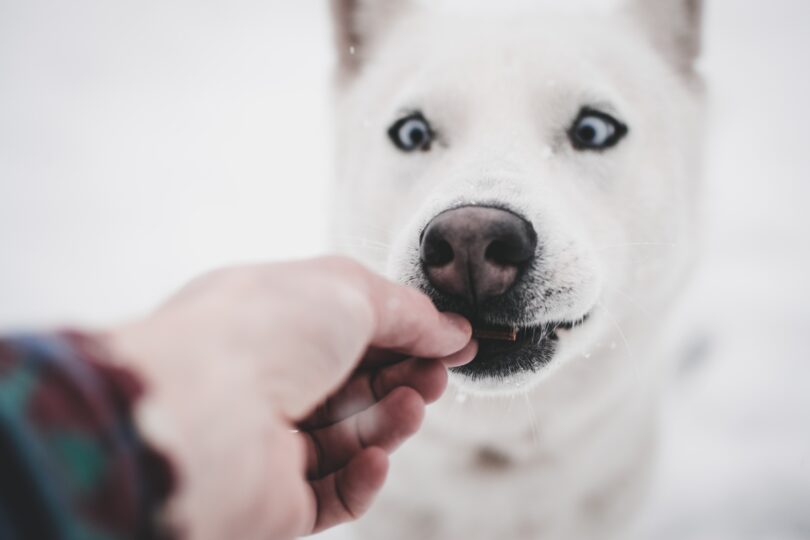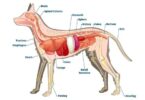
Feeding dogs is a fundamental responsibility for every pet owner, and it’s not just about filling a bowl with kibble. Proper canine nutrition plays a pivotal role in your dog’s health, longevity, and overall well-being. In this comprehensive guide, we will explore the critical aspects of feeding dogs, covering everything from understanding their nutritional needs to making informed choices for their diet.
I. The Basics of Canine Nutrition
To feed your dog optimally, it’s crucial to understand the basics of canine nutrition. Dogs are not obligate carnivores like cats; they are omnivores, which means they can derive nutrients from both animal and plant-based sources.
1.1 The Three Key Macronutrients for Dogs
- Protein: Protein is essential for muscle development and overall growth. Dogs need high-quality protein sources in their diet. Chicken, beef, fish, and eggs are excellent options.
- Carbohydrates: Carbohydrates provide energy. While dogs don’t require a high-carb diet, they can benefit from complex carbohydrates like brown rice, sweet potatoes, and vegetables.
- Fats: Healthy fats are crucial for skin and coat health, as well as for absorbing fat-soluble vitamins. Sources of good fats include fish oil and certain plant oils.
1.2 The Role of Micronutrients
In addition to macronutrients, dogs need a variety of vitamins and minerals for proper growth, immune function, and overall health. These micronutrients include vitamins like A, D, E, and B-complex vitamins, as well as essential minerals such as calcium, phosphorus, and potassium.
II. Life Stage-Specific Nutrition
It’s important to recognize that a dog’s nutritional needs change throughout their life. Different life stages require different dietary considerations:
2.1 Feeding Puppies
Puppies are in their formative growth stages and require a diet rich in protein and calories to support their development. Puppy-specific dog food formulas are designed to meet these unique needs.
2.2 Feeding Adult Dogs
Adult dogs generally require a balanced diet to maintain their health. While their nutritional needs are less specific than puppies or seniors, it’s important to monitor their weight and activity level to adjust their diet accordingly.
2.3 Feeding Senior Dogs
As dogs age, their metabolism slows down, and they may become less active. Senior dogs often benefit from lower-calorie diets with joint-supporting supplements like glucosamine and chondroitin.
III. Building a Balanced Dog Diet
Creating a balanced diet for your dog involves making choices between commercial dog food and homemade diets. Each option has its pros and cons:
3.1 Commercial Dog Food
Commercial dog food is widely available and formulated to meet the nutritional needs of dogs at different life stages. Look for products with high-quality ingredients and those that meet the standards set by organizations like the Association of American Feed Control Officials (AAFCO).
3.2 Homemade Diets
Homemade diets can offer more control over your dog’s food, but they require careful planning to ensure they meet all nutritional requirements. Consult with a veterinarian or veterinary nutritionist to create a well-balanced homemade diet.
3.3 Reading Dog Food Labels
Understanding how to read dog food labels is essential for making informed choices. Look for ingredients like real meat, whole grains, and minimal fillers or additives. Be wary of vague terms like “meat by-products” or “animal digest.”
IV. Portion Control and Avoiding Overfeeding
Determining the right portion size for your dog is crucial to prevent obesity, which can lead to various health issues. Factors like age, activity level, and breed size all influence the amount of food your dog needs. Be sure to measure your dog’s portions and avoid overfeeding.
V. Protein, Carbohydrates, and Fats
The sources of protein, carbohydrates, and fats in your dog’s diet matter:
5.1 Protein Quality
High-quality protein sources should be the foundation of your dog’s diet. Look for dog foods that list a specific source of animal protein, like “chicken” or “salmon,” rather than vague terms like “meat meal.”
5.2 Carbohydrates
Dogs can benefit from carbohydrates like whole grains and vegetables, but they should not form the majority of their diet. Avoid excessive filler ingredients like corn or wheat.
5.3 Healthy Fats
Incorporate sources of healthy fats like fish oil or flaxseed oil to support your dog’s skin, coat, and overall health.
VI. Special Dietary Considerations
Some dogs have unique dietary needs or restrictions:
6.1 Food Allergies and Sensitivities
Identifying and addressing food allergies or sensitivities may require switching to hypoallergenic diets or foods with novel protein sources.
6.2 Dietary Supplements
In certain cases, dietary supplements may be necessary to address specific health concerns, such as joint issues, skin problems, or vitamin deficiencies. Consult with a veterinarian before adding supplements to your dog’s diet.
6.3 Prescription Diets
If your dog has a medical condition, your veterinarian may recommend prescription diets specifically designed to manage or treat that condition. Follow your vet’s guidance closely in such cases.
VII. The Importance of Hydration
Proper hydration is often overlooked but is a critical aspect of canine nutrition:
7.1 Water Needs for Dogs
Dogs need access to clean and fresh water at all times. Dehydration can lead to serious health issues, so make sure your dog always has access to water.
7.2 Wet vs. Dry Dog Food
Wet dog food contains higher moisture content than dry kibble. Adding wet food to your dog’s diet can help increase their water intake.
VIII. Feeding Practices and Techniques
Implementing the right feeding practices can ensure your dog’s meals are enjoyable and stress-free:
8.1 Meal Frequency and Timing
Establishing a consistent feeding schedule helps regulate your dog’s digestive system and can aid in house training. Puppies may need to eat more frequently than adult dogs.
8.2 Avoiding Food Aggression
Teaching your dog good mealtime manners is essential. Avoid food aggression by training your dog to wait patiently for their food and not to guard their bowl.
IX. Common Feeding Mistakes to Avoid
To provide the best nutrition for your dog, steer clear of these common mistakes:
9.1 Table Scraps and Human Foods
Feeding dogs from the table can lead to obesity, digestive issues, and even toxic reactions if they consume harmful foods like chocolate, onions, or grapes. Avoid sharing human food with your dog.
9.2 Free Feeding vs. Scheduled Feeding
Free feeding, where food is left out for your dog to eat at their leisure, can lead to overeating and obesity. Scheduled feeding helps you control portion sizes and monitor your dog’s intake.
X. Transitioning to a New Diet
If you need to change your dog’s diet, do so gradually to prevent digestive upset. Start by mixing a small amount of the new food with their current food and gradually increase the ratio over a week or two.







Leave a Comment